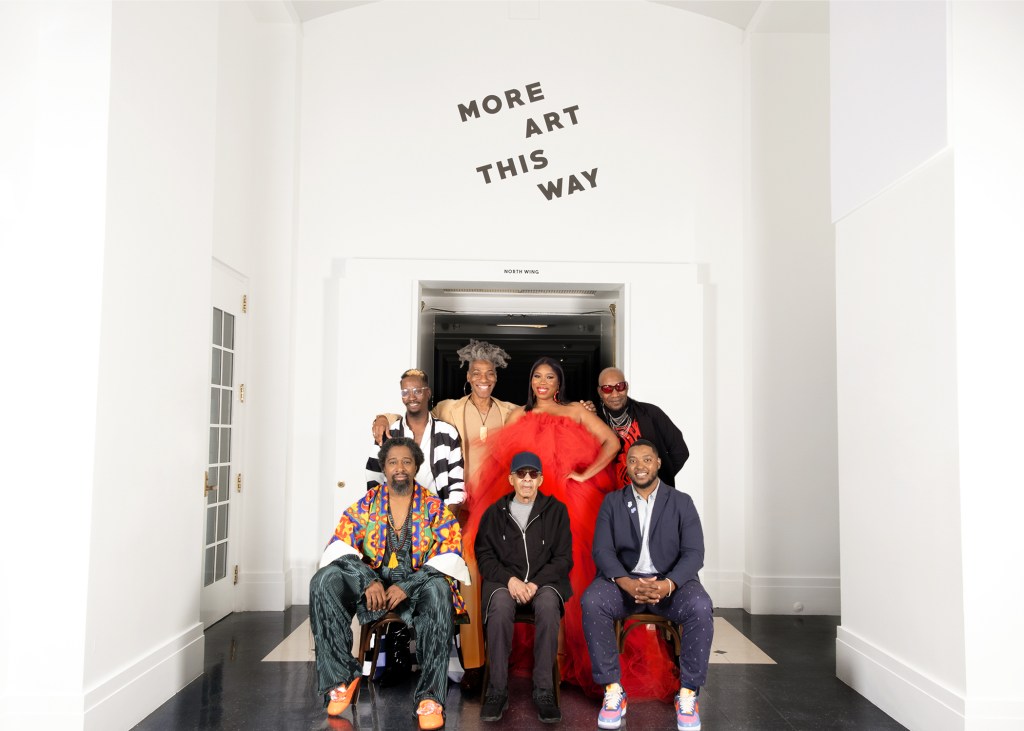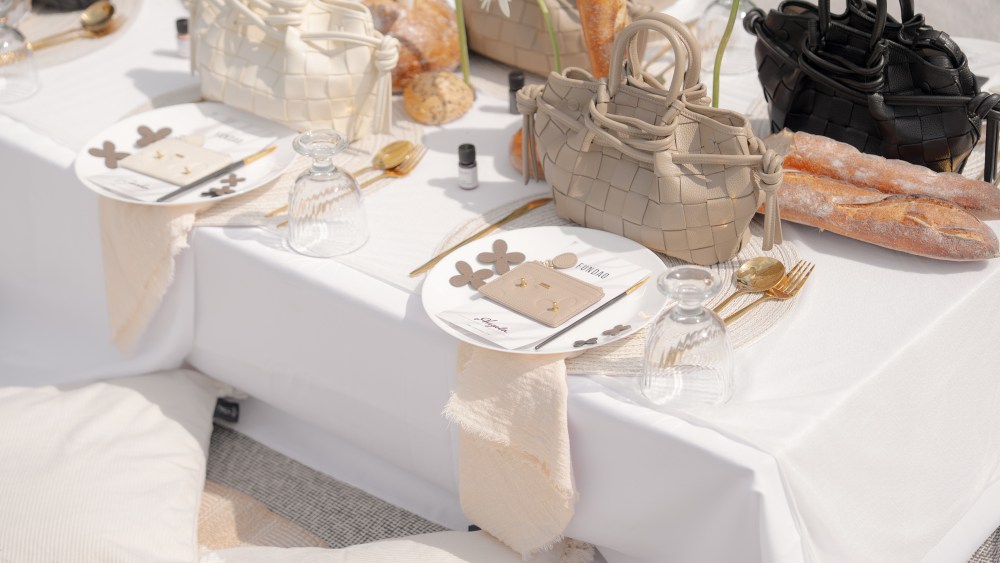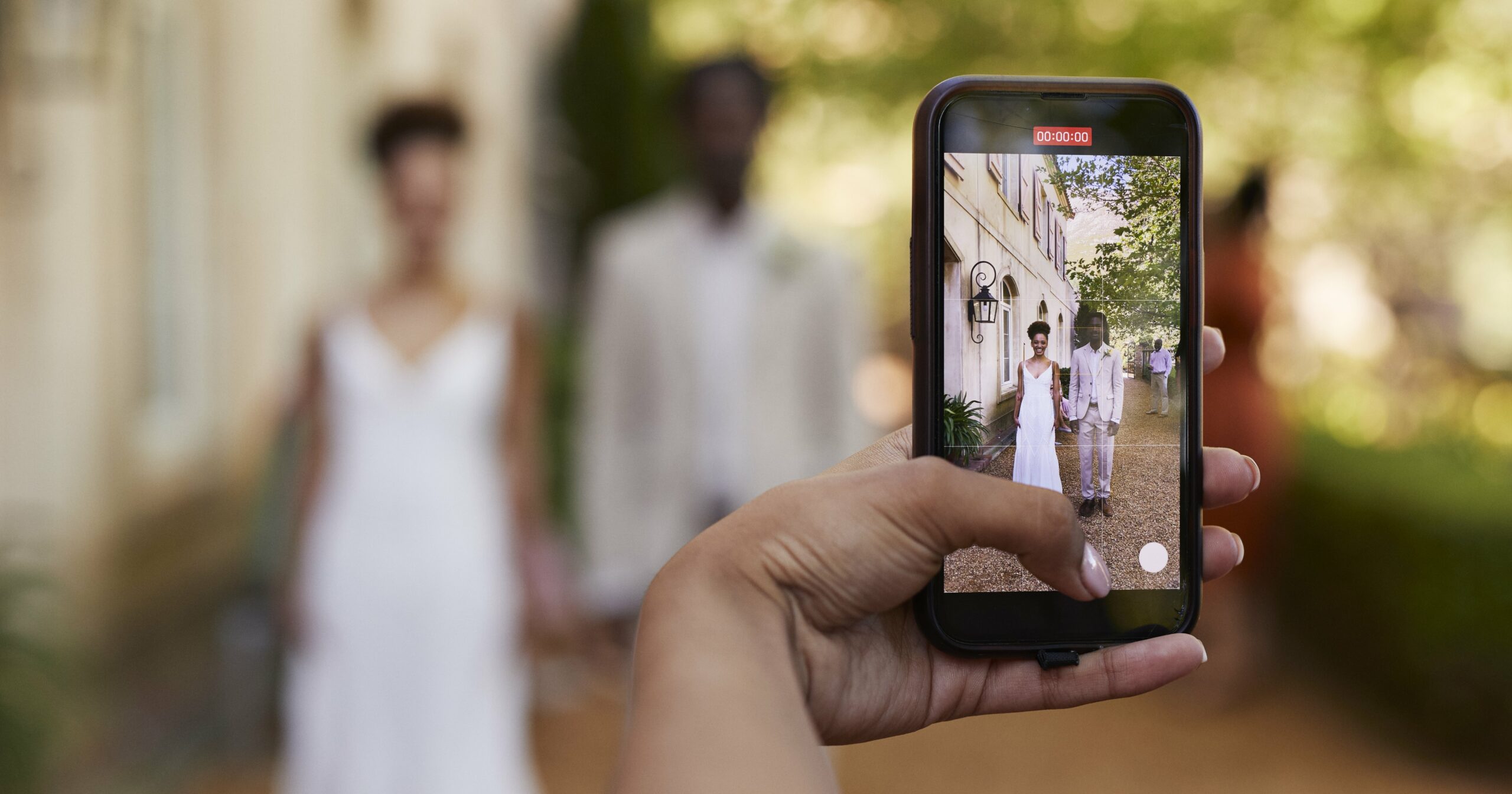Newark, N.J., might not be synonymous with fashion, but a new exhibition aims to change that.
The Newark Museum of Art unveils “The Story of Newark Fashion: Atelier to Runway” Wednesday to highlight 11 fashion designers with Newark connections. On view through June 2, the show is the museum’s first that focuses on contemporary fashion, a subject that is increasingly of interest among museums and auction houses that are seeking to attract a younger and more diverse audience.
The New Jersey city was once a production hub for jewelry and accessories in the 19th and early 20th centuries. The new show highlights the efforts and global reach of such creatives as Stephen Burrows, who was born in Newark. Newark’s fashion influence gained traction in the ’50s and ’60s through boundary-breaking Black designers Wesley Tann and Emily Miles. Tann, a longtime local resident, first became a design assistant in 1950 and opened his own Seventh Avenue company in 1961 — a first for a Black designer. Another local resident, Miles, a milliner, later opened the Belle Meade School of Charm and Modeling in Newark and trained more than 1,000 women and girls, including Newark native Whitney Houston.
The work of the Newark-raised Narciso Rodriguez, designer-stylist-makeup-artist Douglas Says, the late designer Jerry Gant, Melody Asherman and BrownMill Atelier’s Justis Pitt-Goodson are also featured. The show is being guest curated by Kristen Owens, a historian of Black fashion, and Tracey “Africa” Norman is serving as a curatorial adviser. During a joint interview, the duo discussed the significance of the new exhibition. With about 307,000 residents and multiple transportation options to and from New York City and beyond, Newark is known by many as “the Gateway City.”
Like Norman, Owens grew up in and around Newark and was familiar with some of the designers. Visitors will be able to to see the collaborative nature in which the designers worked, including mentoring one another, such as Miles, who advised Tyrone Chablis. In turn, Chablis and Marco Hall were mentors toward Shavi Lewis. Several of the designers, including Chablis, Hall and Lewis, have used Norman as a muse. That aligns with Newark’s somewhat underground family-type fashion scene, according to Owens.
In a statement, NMOA director and chief executive officer Linda C. Harrison said the exhibition shows “the adjacency of the Black and brown fashion community to household names and global brands.”

The new exhibition also salutes Burrows’ contribution to the global fashion scene on the heels of last year’s 50th anniversary of “the Battle of Versailles,” the landmark fashion showdown where a handful of American designers upstaged their European counterparts in 1973. In addition to celebrating his work, Owens said the fact that 12 Black models were featured in that show was an amazing platform, not only for him as a designer, but for Black fashion models.
An anchor attraction in the exhibition is a simulated runway with nine looks from Burrows, who helped define the disco era. Visitors will also get a glimpse of model Pat Cleveland at the epic 1973 fashion show in a clip of the documentary “Versailles ’73.”
Along with the historical and contemporary significance of the designers who are featured in the exhibition, there is also a strong message of possibility for future generations. That could have significant reach, since there is the Newark School of Fashion & Design for high schoolers. Having pursued fashion as a student “without being fully aware of the contributions of Black and people of color to the industry,” Owens said, “I’m ecstatic about the ways that young folks are able to come into the show to be introduced to the possibilities even in regards to becoming a fashion curator. I didn’t even know that you could be that until I got into graduate school.”
Educational outreach is another priority for Owens, who hopes to welcome students from area schools in order to be introduced to the different ways that one can work in fashion. A a fellow Newark-er, Norman is excited to see how younger museum-goers, who are unfamiliar with the names of the featured designers, respond. “We all started at a young age. Everybody was just talented and was doing their own thing,” she said, adding that she started modeling at the suggestions of others. “That’s how I met the [fashion] people from Newark. I too didn’t realize how many designers were available here. Newark was my training ground to learn how to walk and how to perform in front of a camera before I became an international professional model.”
Norman said that after her transition, she pursued modeling at a friend’s suggestion, but her career “shot through the roof,” after Irving Penn discovered her. Meeting Penn was purely accidental — a matter of her “being in the right place at the wrong time,” Norman said. While working as the muse for makeup artist Al Grundy and his fashion designer brother Daryl, Norman attended New York fashion week shows more as a spectator with a portfolio and FIT credentials for entry. After seeing up-close in those cramped spaces how models walked, she would go home and practice in a hallway with a mirror.
However, she did face some resistance in Newark at that time, due to the lack of understanding of who she was. “I was able to pass as a woman. So when people become physically attracted to you and you are not what they perceive you to be, that’s when negativity starts coming your way and people disrepect you and calling you names,” the model said.

Once Norman started modeling professionally, she left the Newark scene and joined the modeling agency Zoli, thanks to Penn. At the end of a two-day shoot for Italian Vogue, the prized photographer called Zoli management, compared her to the pioneering Black model Beverly Johnson and encouraged the modeling agency to hire Norman, she said. With that recommendation, Norman then landed jobs with major magazines and leading brands like Clairol, which featured her photo on its “Nice’n Easy” hair color boxes in the mid to late ’70s.
As for how the fashion industry rates today in relation to diversity, Norman said she “loves it,” and recalled the period in the ’70s, especially in Europe, when Black models dominated the scene. “However, I quickly learned that everything has a season. Before there were the Black models, there were the redheads and before that the Japanese models. Then there were the blondes and the Black girls. After a while, it became no Black girls.” Norman credits Bethann Hardison for being the catalyst for “putting Black girls back on the map.”
While the corporate commitment to diversity may have become more publicly subdued in the past few years since the 2020 Minneapolis police murder of George Floyd, Owens said, “There has been an amazing shift with museums and galleries taking a more community-centered focus. The Newark Museum of Art has someone in a role for community engagement who is very focused in getting artists, designers and all types of creatives from the city and partnering with them for public programs, social media campaigns and other types of things.”
Through her work in academia, Owens lauded Black fashion scholars like Kim Jenkins, Jonathan Michael Square, Rikki Byrd, Tanisha Ford and Elizabeth Way. “They all work between museum spaces and higher education. They are really pushing more diverse conversations within and around academia, as it relates to fashion,” she said.



